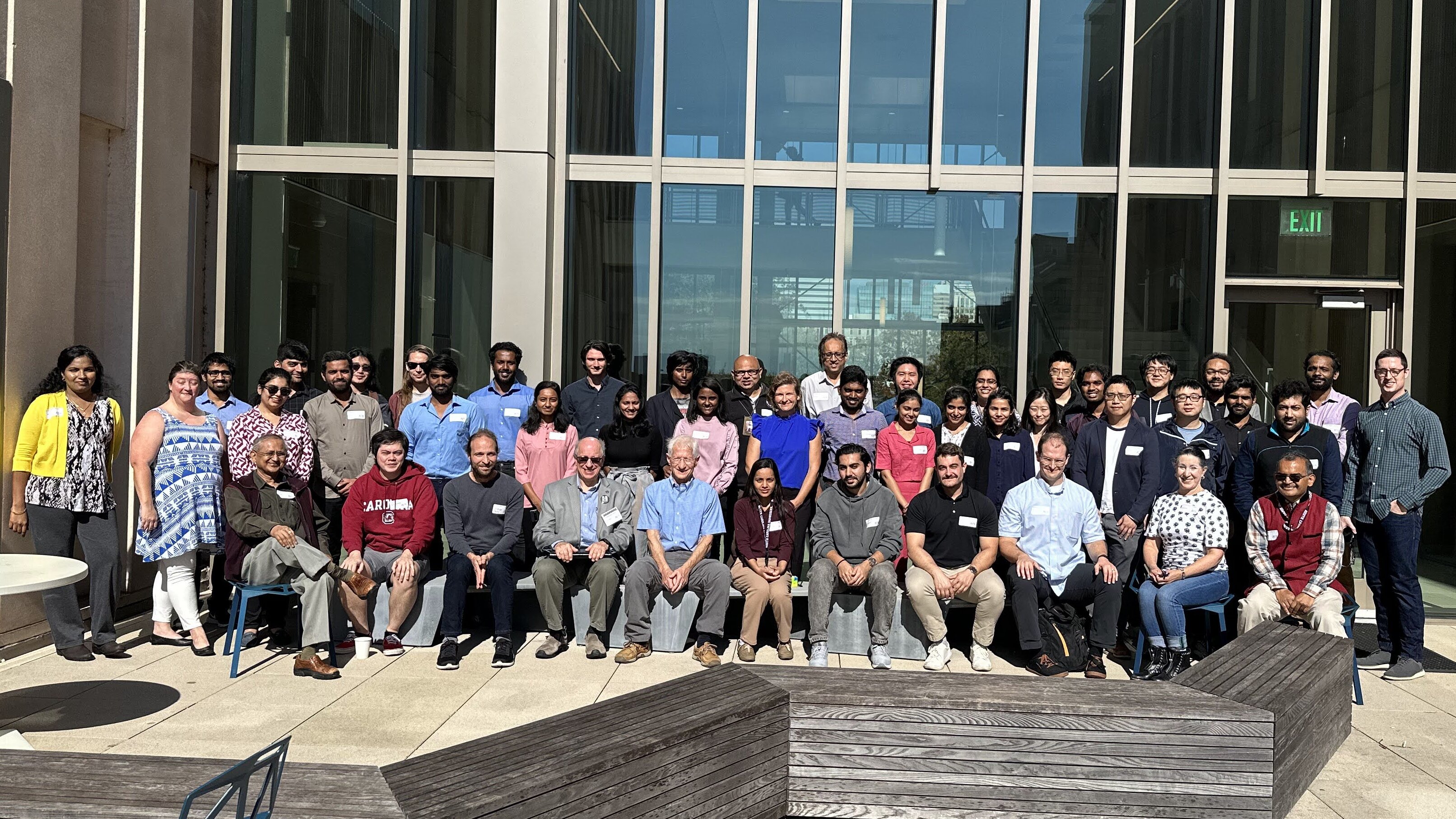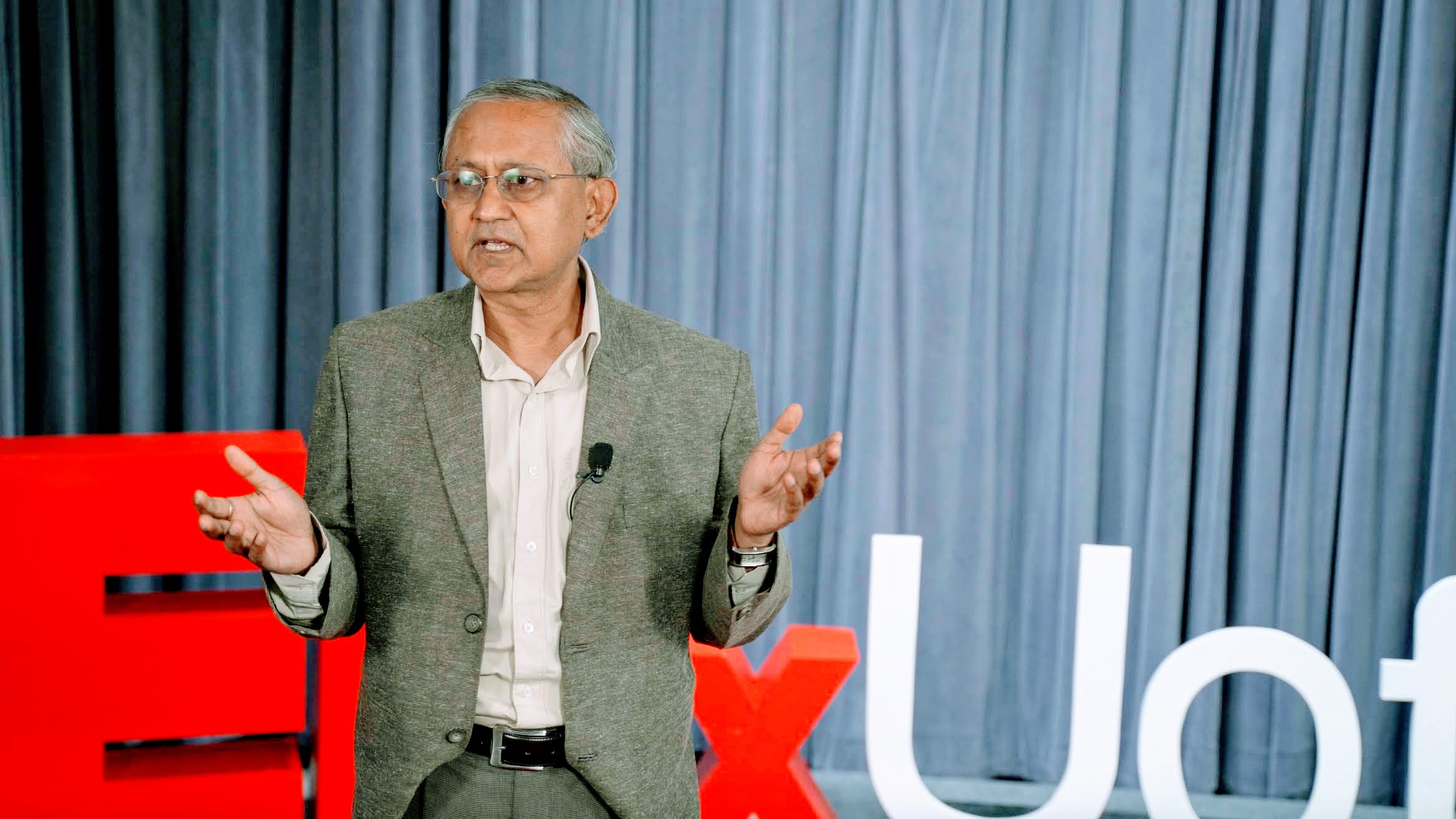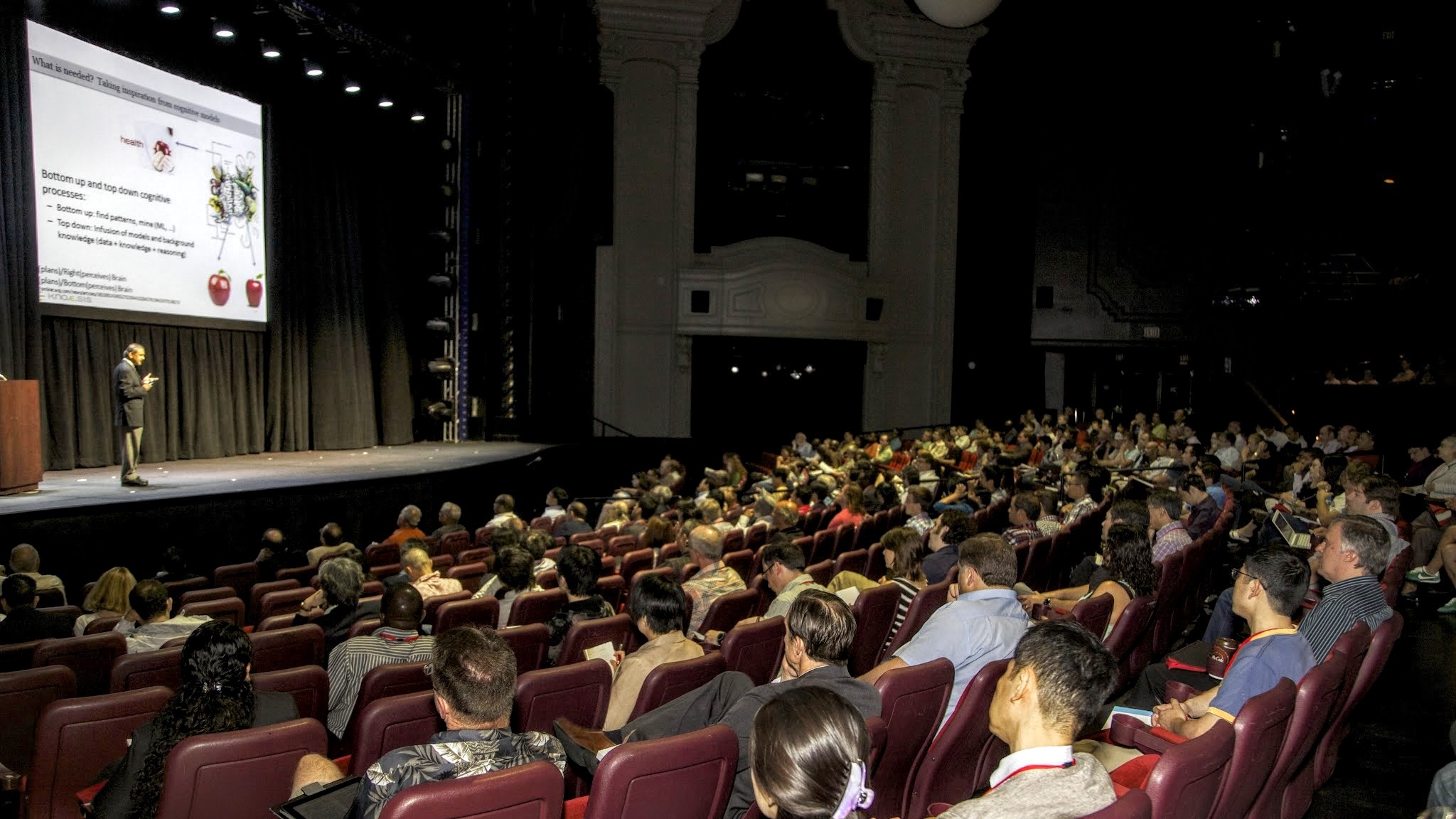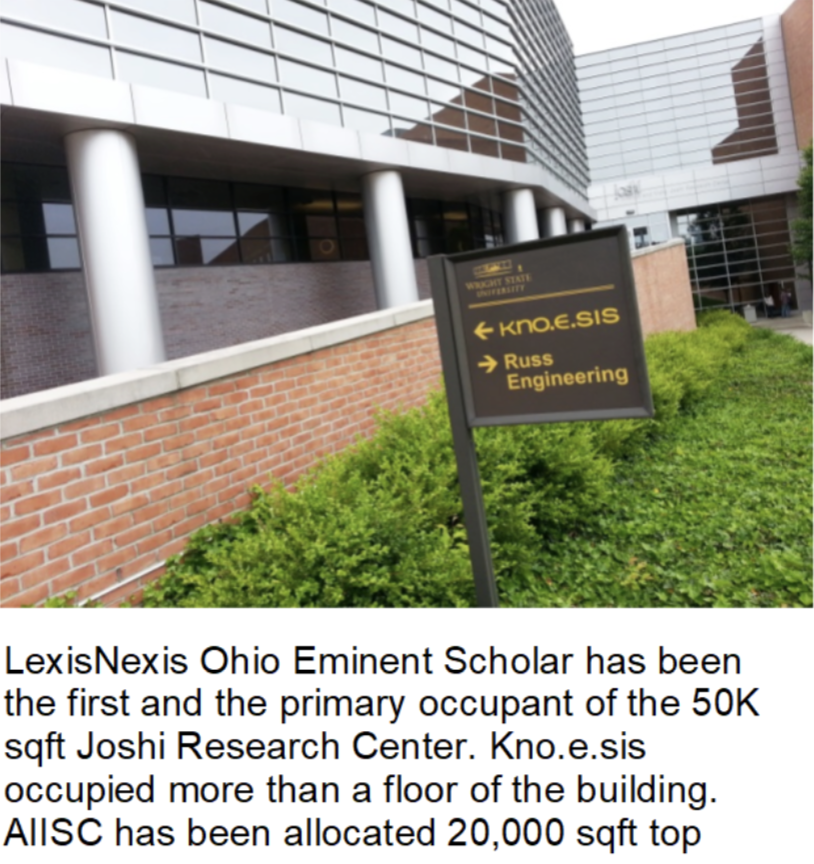
|
Amit P. Sheth
Founding Director, AI Institute@UofSC NCR Chair and Professor, Computer Science & Engineering |

As an Educator: advisees that compete with the best from top 10 programs with exceptional career outcomes; average citations of 1,700+ and a mean of 1,378 for his PhD advisees (07/2016).

As a Leader: As a leader, he built three world-class academic research organizations (LSDIS, Kno.e.sis, AI Institute of South Carolina), translated research innovations into significant economic activities, and served on many scientific advisory committees and company boards.

As a Researcher: multidisciplinary, fully-scaled research with real-world impact; among the top 100 in CS and among the top cited in WWW and DB; h-index = 99; 55+ keynotes; $27+M in research/ 6+M in commercialization funding.

As an Entrepreneur: founded startups resulting in significant employment; served as CEO/COB; advised many startups; many commercial products and fully deployed applications serving businesses and scientists.
Amit Sheth is an educator, researcher, and entrepreneur. He is the NCR Chair and Professor of Computer Sc & Engineering at the University of South Carolina (USC). As the founding director of the university-wide Artificial Intelligence Institute of South Carolina (AIISC) (07/19-09/23), he grew it to nearly 50 researchers. Previously, he was the LexisNexis Ohio Eminent Scholar (a state created endowed position) and the executive director of Kno.e.sis—the Ohio Center of Excellence in Knowledge-enabled Computing and the multidisciplinary Ohio Center of Excellence in BioHealth Innovation. Prof. Sheth is working towards a vision of Computing for Human Experience aided by advances in the third phase of neuroscience and cognitive science inspired AI (civilized & human value inspired AI, knowledge-empowered neuro-symbolic/hybrid AI, & semantic, cognitive, and perceptual computing). His recent interests associated with intelligent, robust and trustworthy AI include grounding, alignment, instructability, reasoning, analogy, interpretability, explainability, safety; multimodal AI, conversational AI including virtual assistants, etc. Both the AIISC and earlier Kno.e.sis have extensively carried out interdisciplinary research (examples: digital/personal/connected health/public health/nursing/epidemiology (applied to diverse conditions- mental health & wellbeing, asthma, diabetes, aphasia, cognitive decline, drug abuse, nutrition, COVID19, epidemic, etc.), cognitive science, neuroscience, smart manufacturing, biomedicine, education, social good and social harm (including disaster management, toxicity/disinformation/fake news/radicalization/ extremism). The translational nature of his research includes projects with a majority of the colleges/schools at the universities he lead Kno.e.sis and AIISC, and includes intimately involvement in open-source activities, social entrepreneurship, technology transfer and licensing, commercialization, and regional economic development as he continues to lead research that emphasizes real-world scientific, technological, human development and economic impact. Some of Prof. Sheth’s recognitions, honors and awards include:
As a LeaderHe has been able to demonstrate the ability to create world-class entities to achieve unprecedented institutional outcomes. The AIISC was the first university-wide AI initiative in the US Southeast. During his stewardship, he built it into a world-class organization (top leaders: “put USC on the world map”) with nearly 50 researcher (7 well-funded faculty, ~35 funded Ph.D. students, ~3000 citations annually, exceptional student outcomes, IP creation, support for large and small companies). Kno.e.sis, with its ability to position Wright State University among the top 10 in the world in the area of World Wide Web, and was the largest research center in the university’s history. Prior to Kno.e.sis, he established the LSDIS lab at the University of Georgia as one of the top international groups in its area of research, bring 70-75% of the funds in the department. His leadership approach includes an ability to create a strong ecosystem with a focus on vision, people, collaborations, and resources.
He has pursued a vision with a multidisciplinary scope, placing bets on high risk and high reward topics well before those topics have ascended the hype curve, developed a highly collaborative environment that attracts exceptional members (e.g., employees, faculty, students), personally and collectively securing highly competitive funds, and ensuring exceptional outcomes. Example innovations and the terms he coined include Augmented Personalized Health (2017), Smart Data (2004), Semantic Sensor Web (2007), Citizen Sensing (2008), Semantic Perception (2008), Continuous Semantics (2009), and Knowledge-infused Learning (2016). He has served on numerous scientics/technical advisory boards.

As an Educator
Prof. Sheth's most prized achievement is the exceptional success of his past advisees (supervised 31 completed PhD dissertations, >50 MS Theses, >15 postdocs), practically all of whom competed successfully against graduates/postdocs from top 20 institutions. Several of his students have received prestigious international awards and fellowships and been mentioned in numerous articles in top global media outlets (http://aiisc.ai/amit/media). Three of them have given keynotes at significant events prior to completing their PhDs, and a majority of his Ph.D. advisees have over 1,000 citations each, including five with 5,000+ citations each. The average citation for his first 20 Ph.D. advisees on Google Scholar exceeds 1,800 (http://j.mp/Kimpact). His students/postdocs have been employed at major research universities (NCSU, CWRU, GMU, UMBC, UKY, Stanford, UCSF, UMBC, GSU), top industry research positions (IBM, Amazon, Samsung, Bosch, etc.), top technology companies (Meta/FB, LinkedIn, Amazon, Apple, Walmart Labs, Target Labs, CISCO, …), hold executive positions, and are successful entrepreneurs. All his Ph.D. students who have chosen to go for TT academic jobs have gone to R1 universities without having to do a postdoc. Prof. Sheth has demonstrated academic initiatives and innovations in the form of initiating/advising new academic programs (e.g., certificates in AI as well as Big and Smart Data Sciences; currently developing MS in Interdisciplinary AI), being among the first in the world in offering courses on emerging topics (Internet Programming in 2000, Enterprise Information Systems & Distributed Workflow in 1995, Global/Web Information Systems in 1995, Semantic Web in 2001, Web 3.0 in 2013, Neurosymbolic AI in 2021, etc.), online teaching, international educational and research collaborations, and extensive (>50) tutorial presented to academic and professional audiences. He takes prides in nurturing diversity. Compared to a female student population of less then 20% in good CS graduate programs, >50% of his group consists of females, matched by excellent participation of underrepresented groups. As the dean’s representative for PhD program recruiting for his college, he was able to use his extensive international connections to attract students from top international institutions and develop joint programs.
As a Researcher
Prof. Sheth has been elected fellow of five major professional societies. Research.com placed him among top 50 Computer Science authors in the USA and top 80 worldwide in 2022 (http://bit.ly/topCS100). Recent h-index 121 with ~62,000 citations). He has been places highly in WWW (top or top 5 in based on 5, 10, or all-years during 2010-2016) and top 25 in databases (all years, Microsoft Academic Search, Mar. 2013: http://j.mp/MAS-a), and at the top 1-3 in Semantic Web/Semantic Computing/Semantic Technology/Neurosymbolic AI and a few other topics (cf: Aminer/Google Scholar). He has been a PI of numerous competitive research grants, totaling >$34 million, sponsored by federal agencies (23 NSF, 10 NIH including 4 R01s, DARPA, AFRL, AFOSR, ARL, ONR, etc.) as well as industry (Microsoft Research, IBM Research, HP labs, Bosch, etc.). Additionally, >> $7 million has been awarded to support his technology commercialization and R&D efforts, resulting in several times more in economic activities incl. payroll and jobs creation. For about 10 years, own annual research expenditures have been ~$1-1.5 million (translating into ~100 GRA months per year). He is on several journal editorial boards, is a founding co-EIC of Web Intelligence Journal, was the founding EIC of the International Journal on Semantic Web and Information Systems (IJSWIS) with IF>3 while he was the EIC, served as an EIC of Distributed and Parallel Databases (DAPD) for 15 years, and is a co-editor of two Springer book series. He has organized and/or co-organized over 100 international events (conferences/workshops), served on >250 PCs, and given >100 keynotes at many of the most significant conferences in his area.
As an Entrepreneur, Innovator, Technologist, Executive, and Leader with Real-world ImpactProf. Sheth’s research has led to the founding or cofounding of four companies resulting in significant regional impact and development of high-tech jobs (majority of technical leadership in the companies have been his former students). Three of the companies (two acquired, one formed in 2016 and growing rapidly) are based on the licensing of technologies that resulted from his university research, resulting in significant (>$400K) licensing fees/royalties. Additional two startups involved incubating the technology under his guidance. His work has resulted in several commercial products, and many deployed applications. He has a long history of leading multidisciplinary, multi-institutional, and multinational projects. In the areas of healthcare and life sciences, his intensive collaborations with clinicians as well as biomedical researchers have resulted in research and commercial tools, systems, and applications.
For the companies he has founded, he also played executive roles encompassing Chairman of the Board, President and CEO, Senior VP, CTO, and Chief Scientist, founder, supervising a full range of activities including fundraising, finance, customer acquisition/sales, business development and marketing, engineering, recruiting and training. His second (VC-funded) company grew to approximately 35 employees (with a majority recruited from the university) and spent $7 million in local payroll before it was acquired. He has served (and continues to serve) on technology and business advisory broads and in a variety of advising roles, including international research projects, academic programs, and startups. He has had a long-term interest in higher education and has given a number of presentations covering policy and strategic issues to decision-makers (e.g., Prime Minister Modi of India).
Amit Sheth Homepage, Google Scholar, LinkedIn, Wikipedia, ORCID, Semantic Scholar Keynotes (samples), AIISC@LinkedIn, Current Projects Three page vita overview [PDF],a CV [PDF] and find additional information at http://www.linkedin.com/in/amitsheth
For information on past and current grants, visit Dr. Sheth's project page, the Kno.e.sis Center's funding page, and Grantome. |
|||






